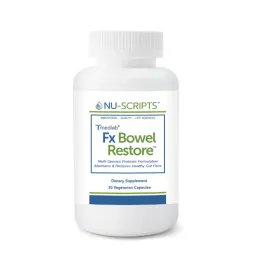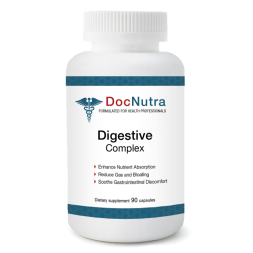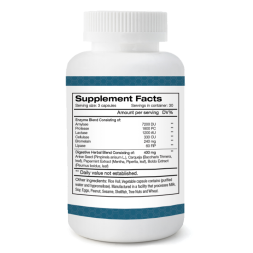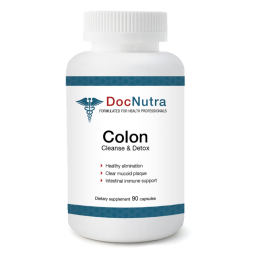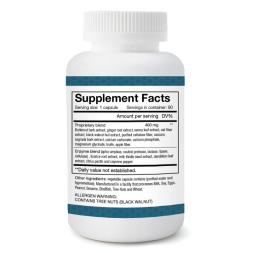Polyp Formula (DFS)
- $34.99
- Quantity Tier Pricing
- 2 or more $24.49
- 12 or more $20.99
Targeted Cellular and Mucosal Support: Berberine and Graviola in Polyp Regulation
Berberine
Overview:
Berberine is a bioactive isoquinoline alkaloid found in plants such as Berberis vulgaris (barberry) and Coptis chinensis. It exhibits broad-spectrum metabolic, antimicrobial, and cytoprotective properties, and has been extensively studied for its effects on cellular proliferation, inflammation, and gut microbiota modulation—key mechanisms relevant to the prevention and management of polyp formation.
Health Benefits Related to Polyp Regulation:
-
Cellular Growth Regulation:
Berberine supports normal cell cycle regulation by modulating signaling pathways such as AMPK, MAPK, and Wnt/β-catenin, which are commonly overactive in polyp development and early neoplastic changes.
→ Clinical Relevance: Helps maintain controlled epithelial cell turnover within the intestinal lining. -
Anti-Inflammatory Action:
Reduces the expression of NF-κB, COX-2, and pro-inflammatory cytokines that contribute to chronic mucosal irritation and polyp progression.
→ Clinical Relevance: Helps minimize local inflammation that predisposes to aberrant mucosal growth. -
Gut Microbiota Balance:
Berberine promotes a balanced intestinal microbiome by reducing pathogenic bacterial load and supporting commensal species, which improves mucosal immunity and intestinal barrier function.
→ Clinical Relevance: A stable microbiota environment helps reduce mucosal stress and abnormal tissue proliferation. -
Antioxidant and Mitochondrial Support:
Enhances mitochondrial function and reduces oxidative DNA damage, an important factor in early neoplastic transformation.
Clinical Insight:
Through combined anti-inflammatory, antimicrobial, and metabolic regulatory effects, Berberine supports intestinal epithelial health and cellular balance, making it a promising adjunct in protocols focused on the prevention and stabilization of benign mucosal growths such as polyps.
Graviola (Annona muricata)
Overview:
Graviola, also known as soursop, is a tropical plant valued for its bioactive acetogenins, alkaloids, and polyphenols, which exhibit antioxidant, anti-inflammatory, and cell-regulating properties. Traditionally used in integrative medicine, it has been investigated for its potential in modulating abnormal cell proliferation and maintaining mucosal homeostasis.
Health Benefits Related to Polyp Regulation:
-
Cellular Homeostasis Support:
Graviola acetogenins have demonstrated the ability to support regulated cellular energy metabolism by influencing mitochondrial complex I activity, helping maintain normal cell turnover and reducing aberrant cell proliferation.
→ Clinical Relevance: May assist in maintaining healthy epithelial growth patterns within the gastrointestinal tract. -
Antioxidant Protection:
Rich in phenolic compounds and flavonoids, Graviola helps neutralize free radicals and reduce oxidative stress—a key factor in DNA damage and mucosal dysregulation associated with polyp formation. -
Anti-Inflammatory Effects:
Modulates inflammatory mediators such as TNF-α and IL-6, and downregulates COX-2 and iNOS, helping protect the gastrointestinal lining from chronic inflammatory insult. -
Immune Modulation:
Supports natural immune surveillance by enhancing macrophage activity and maintaining mucosal immunity, both important in the recognition and clearance of abnormal cell clusters.
Clinical Insight:
Graviola contributes to mucosal protection and balanced cellular signaling, supporting the body’s natural ability to maintain healthy tissue architecture and prevent abnormal epithelial proliferation.
* Please be aware that packaging displayed on our website may vary from your order based on factors such as availability and supplier changes, or to improve the readability of product details.
* These statements have not been evaluated by the Food and Drug Administration. This product is not intended to diagnose, treat, cure, or prevent any disease.
Related Products
Tags: polyp formula , dfs polyp formula ,







